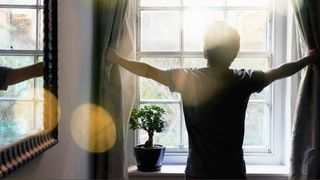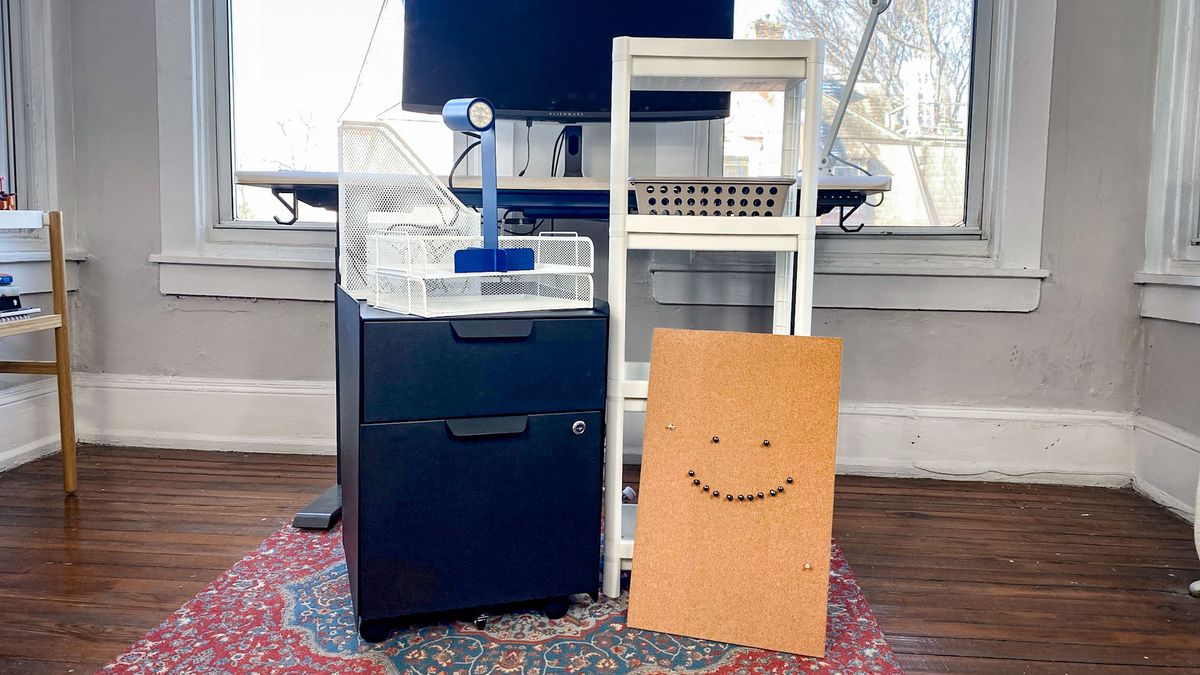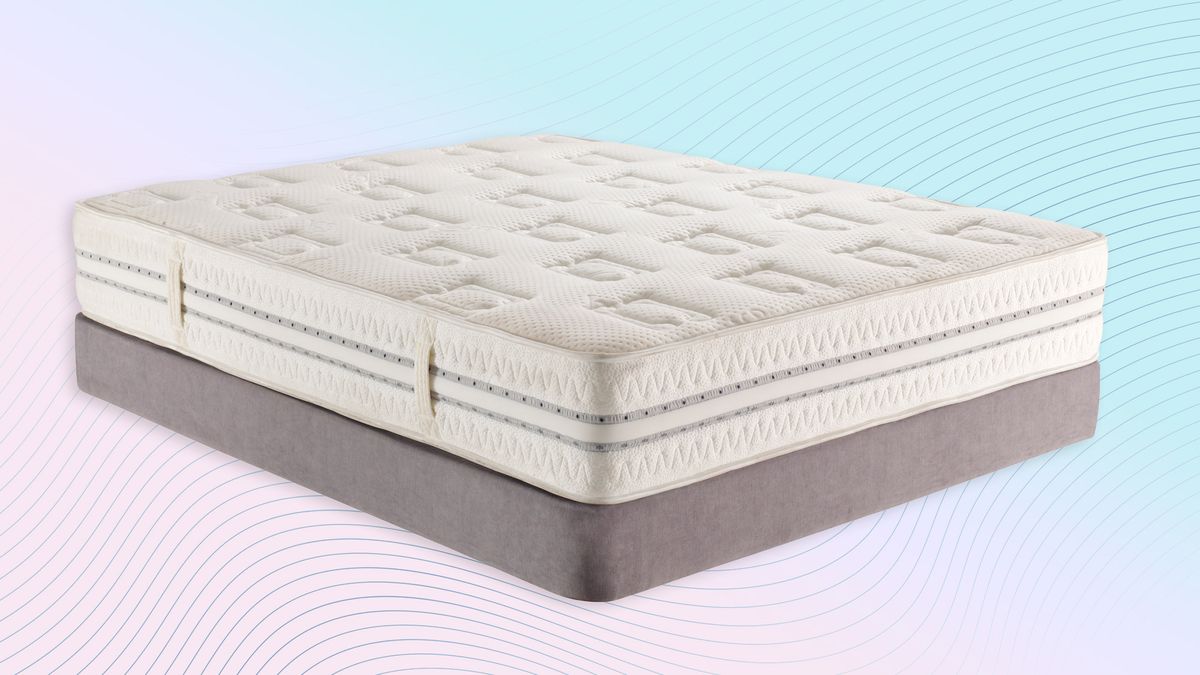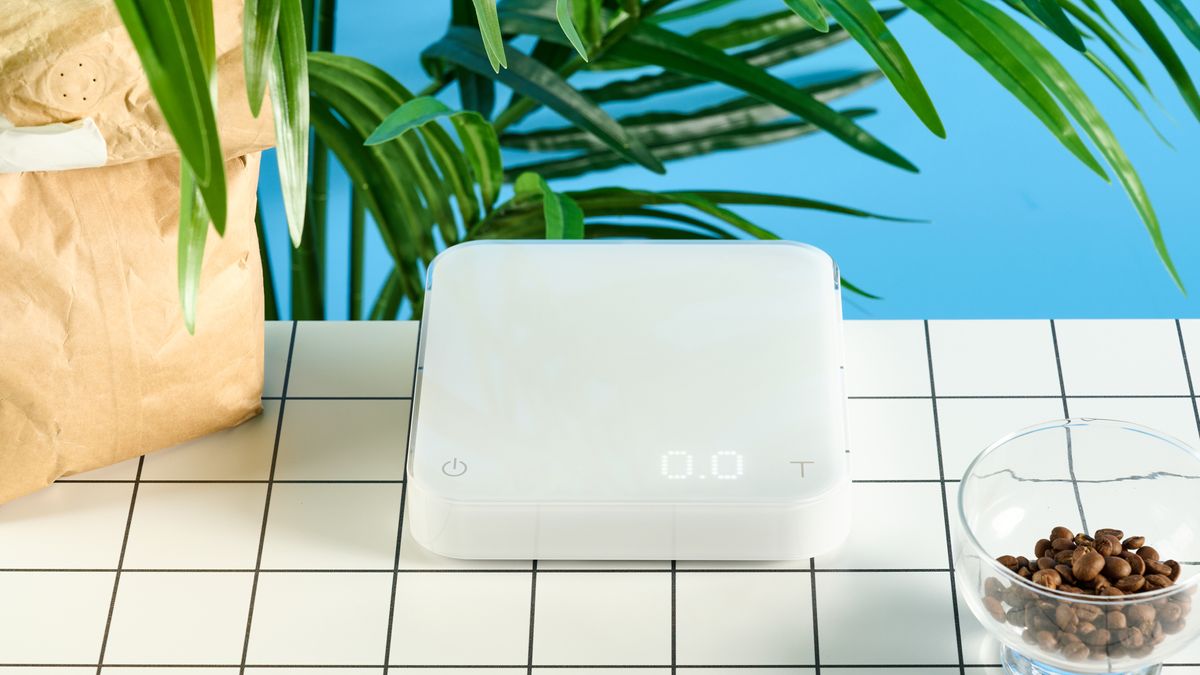While dark morning and evenings are inevitable in winter, turning the clocks back does afford an extra hour of (much needed) light in the morning. Plus we get an extra hour of the weekend, so we're certainly not complaining.
The British Sleep Society, a professional organisation for medical, scientific and health workers, says our circadian and sleep health are affected positively by the availability of natural daylight during the morning. So while we may initially feel a bit groggy as our sleep schedule changes, the clocks going back can help us sleep better in the long run.
Starting your morning with natural daylight helps to reset your circadian cycle and sends a 'wake up' signal to your brain
Dr Nerina RamlakhanWe've asked neurophysiologist and sleep expert at Oak Tree Mobility Dr Nerina Ramlakhan why lighter mornings are best for our wellbeing and sleep health, as well as offering our top tips on how to get better sleep in the winter.
Do mornings get lighter when the clocks go back?
Turning the clocks back an hour during autumn provides more sunlight in the morning, whereas pushing them forward in spring brings lighter evenings.
Theoretically, mornings should get lighter when the clocks go back as the purpose of this time change is to gain an extra hour of light in the morning. This extra morning light is noticeable for a good few weeks. However, as sunrise gets so much later during winter months, light soon ends up coming later than it does in the summer despite the clocks changing.
Ultimately there is no way to avoid dark mornings and evenings in winter, but the clocks going back do give an extra hour of light in the morning to make cold commutes somewhat easier. Without the clocks going back, we wouldn't see the sun until around 9am in the winter.
3 ways lighter mornings help you sleep
We looked deeper into the research and asked the experts to find out how lighter mornings help us sleep better.
1. Boosts energy during the day
Researchers at the American Academy of Sleep Medicine say: "Light is the most powerful exogenous zeitgeber." In layman's terms, that means the most powerful signal to your body that it's time to wake up.
Getting sunlight exposure in the morning boosts our cortisol levels early in the day. Cortisol is the stress hormone responsible for waking us up faster and making us feel alert. Therefore, spikes in the morning give us energy and alertness to power us through our daily tasks.

"Starting your morning with natural daylight helps to reset your circadian cycle and sends a 'wake up' signal to your brain," says Dr Ramlakhan. She advises you go to bed with your curtain slightly open, or consider a sunrise alarm clock that mimics the gradual sunrise to wake you up in the winter months.
Morning light regulates your energy levels. It means you have energy when you need it, which is usually early in the morning when you need to get to work, and can wind down later in the day when it's time to get ready for bed.
2. Regulates your circadian rhythm
Our internal body clock, also known as our circadian rhythm, works on 24-hour cycles where we wake wake up and sleep at roughly the same time each day. This regulates the timing of bodily functions including hormones, metabolism and mood.
Studies show exposing yourself to early morning sunlight helps balance the sleep hormone melatonin and resets your body's clock. In short, morning sunlight helps our natural body clock function, ensuring we get quality sleep at night to set us up for an energised day.
Dr Ramlakhan advises us to "Try to fix your wake time so that you get out of bed and get 15 to 30 minutes of natural daylight as soon as you wake up. This will optimise your sleep and wakefulness periods and helps you to produce more melatonin at night."
3. Improves physical and mental health
Members of the British Sleep Society say maintaining summer time all year round would pose a "danger to human sleep and health, primarily because of the resulting lack of natural light during winter mornings." The American Academy of Sleep Medicine agree.
Studies have been carried out to determine the sleep and health implications of darker mornings. The findings consistently show poorer sleep and poorer health in locations where solar timing is later in relation to clock time (i.e. where sunrise is later).
These detriments include less sleep, dysregulated circadian rhythms, more fatal traffic accidents, poorer cardiovascular health, higher rates of mental health struggles and shorter life expectancy.
Therefore, there is a greater physiological and psychological need for daylight earlier in the morning to improve sleep and overall health.

Why do the clocks go back?
Following the summer solstice where there is the longest period of daylight in June the days gradually become shorter as the sun rises later and sets earlier. Therefore, by turning the clocks back an hour during autumn, we get more sunlight in the morning, which experts say is the most crucial time to get natural light.
The British Sleep Society says: "Morning light is crucial to allow us to initiate sleep early enough in the evening, and wake early enough in the morning (preferably naturally without an alarm clock) for work and school starts."
How to get good sleep when the clocks go back
1. Stick to a nighttime routine
A well-established nighttime routine is the bedrock of good quality sleep. Having a personalized wind-down routine that is sustainable and enjoyable for you helps you sleep easy.
Your body will recognise the steps in your routine, be they reading a book, stretching or listening to certain audio, as signals to sleep and will in turn produce the sleep-inducing hormone melatonin.
2. Improve your sleep hygiene
Although keeping your sleep space clean, regularly washing your bedsheets and vacuuming your mattress are all contributors, sleep hygiene is not exclusively about cleaning. It's also about creating good habits at bedtime.
Things like regular exercise, a calm sleep space and avoiding large meals before bed also improve your sleep hygiene, allowing you to drift off easily and stay asleep throughout the night. This makes sure you get the quality rest your body needs to function optimally during the day.

Dr Ramlakhan says "good sleep habits" for optimising your sleep routine include "avoiding screens, cutting back on caffeine and other stimulants before bed, and making sure your sleep environment is comfortable."
Kit out your sleep environment with the best mattress for your body type and sleep needs, this year's best pillows and bedding and you're sure to get the most comfortable, restorative sleep possible.
3. Get outside
It's easy to think good sleep is all about what you do in the hour before bedtime, but your daytime habits also have a big impact. Getting outdoors in natural sunlight is key to sleeping well at night.
We should aim for as much natural light as possible during the day as it can improve both sleep quality and morning alertness, making you feel more awake and prepared for the day.

Natural light is especially important in the morning, so I recommend sitting by a window when eating your breakfast or stepping outside to drink your morning coffee. That said, natural light exposure is beneficial throughout the day too. A walk in nature is a great way of combating the winter blues and promoting good sleep.
Plus it's not all about light exposure, fresh air can also help you sleep better. It does this by increasing oxygen levels in your blood which can help you fall asleep faster, sleep deeper and wake up less during the night, and relieving stress and anxiety which makes for a more calm night's sleep.




















 English (US) ·
English (US) ·